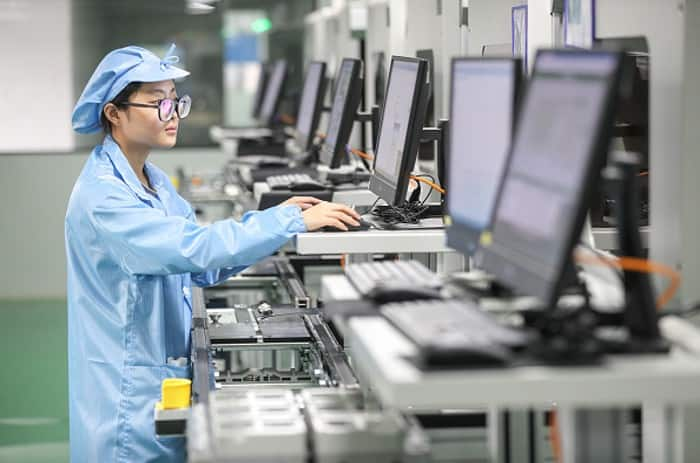In a decisive move to tighten control over foreign technology, particularly from China, the government is considering expanding its "trusted source" mandate to several key sectors, including smart meters, parking sensors, drone components, and even laptops and desktops. This comes amid growing apprehension surrounding Chinese imports and potential security threats, following the exploitation of vulnerabilities in the pager supply chain by Israel against Hezbollah militants.
According to a report by Times of India (TOI), the mandate, initially focusing on surveillance equipment—primarily CCTVs, where China dominates the market—is set to take effect this month. However, the government aims to broaden the restrictions to other sectors in a phased and calculated manner. Recently, the commerce department extended the import monitoring system for laptops and computers until December, signaling potential further restrictions thereafter, sources have revealed.
The government’s overarching goal is to safeguard devices connected to the Internet of Things (IoT), with concerns rising that sensitive data could be accessed by foreign firms or agencies across India's northern borders. Consequently, stringent checks on surveillance cameras—requiring mandatory certification by designated labs—have been introduced following lapses observed in the security framework.
Sources elaborate that several critical components, such as those found in SoC (System on a Chip)—an integrated circuit that consolidates multiple components of an electronic system—will now need to be certified by government-designated agencies before they can be utilized by Indian or international manufacturers.
"The idea is to build a trusted supply chain for electronic goods as we do not want any weak links that can be tapped by foreign firms given that we are in a hostile neighborhood," said a government source, emphasizing the need for heightened vigilance.
The government's shift from imposing tariff walls to implementing rigorous technical specifications has been driven, in part, by policy limitations under the World Trade Organization’s Information Technology Agreement-I (ITA-I). Additionally, despite tariff barriers, Chinese companies have managed to maintain a stronghold in the Indian market due to their cost-effective production.
This strategic shift in policy mirrors the success of the initial CCTV restrictions, which first applied to government procurements before being extended to the retail sector. Indian sellers, facing these new regulatory requirements, have managed to adapt, creating a domestic supply chain capable of compliance.
You may also like

Bomb Threats Target Eight Railway Stations in Rajasthan, Security Tightened

"Let's come together to defeat BJP's conspiracy to make India on Godse's ideology": CM Siddaramaiah

Michael Schumacher's 'future daughter-in-law' breaks 'ring of steel' around sportsman

Bomb Threats Target Eight Railway Stations in Rajasthan, Security Tightened

"Let's come together to defeat BJP's conspiracy to make India on Godse's ideology": CM Siddaramaiah







